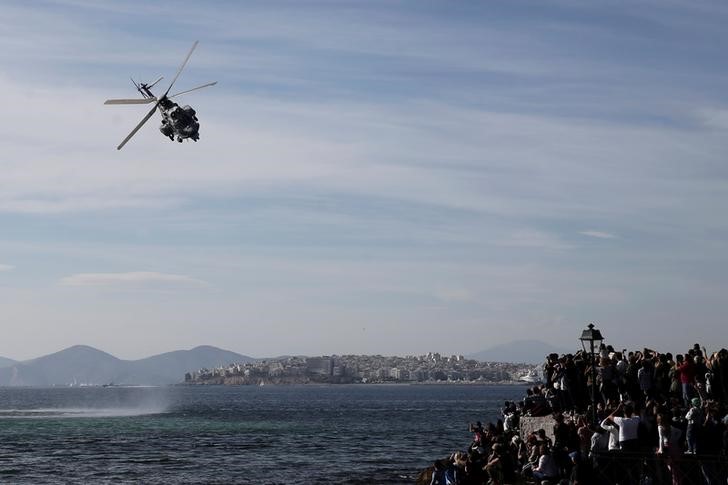OSLO (Reuters) - Norwegian state-controlled oil company Statoil (OL:STL) will not resume using Airbus's (PA:AIR) H225 Super Puma helicopters even if Norway's Civil Aviation Authority decides to lift a ban imposed after a fatal crash off Norway in April, the company said on Tuesday.
Recent models of Super Puma, a workhorse of the offshore oil industry, were banned from commercial traffic in Norway and Britain following the accident that killed 13 oil workers flying from a Norwegian offshore oil platform operated by Statoil.
"We have no plans to use this helicopter ever again, even if the Norwegian authorities decide to lift the ban", Statoil spokesman Morten Eek said.
"It doesn't matter what the Aviation Authority says. We can specify the helicopter type we want to use and we have already built up capacity with a different helicopter, the Sikorsky S-92," he added.
The announcement comes after unions representing oil workers expressed concern about the H225 helicopter and asked for a permanent ban.
The helicopter that crashed in April was working for Statoil and operated by Canada-based group CHC Helicopter (PK:HELIQ) [CHCEL.UL].
Norwegian investigators have said in preliminary findings a technical fault caused the Super Puma's main rotor blades to spin away from the aircraft, killing everyone on board.
The European Aviation Safety Agency lifted a flight ban in October after Airbus contained a potential weakness inside the gearbox.
But national bans on the use of recent Super Pumas for commercial traffic remain in place in Norway and Britain.
Airbus Group has expressed frustration at the local bans.
"I regret the timing of Statoil's comments during a difficult time for the offshore community as a whole, at a time when we are working with the Norwegian authorities and investigation team to address the specific concerns regarding the return to service of the H225 and AS332-L2 in the region," Airbus Helicopters' chief executive Guillaume Faury said on Tuesday.
In October Airbus Group's finance director Harald Wilhelm suggested Britain's decision to keep the aircraft grounded was related to the country's decision to leave the European Union.
Britain's Civil Aviation Authority responded, saying that the decision was purely related to safety.
The Super Puma has come under scrutiny after a series of incidents linked to gearbox problems including a 2009 crash off Scotland, in which the rotor also flew off and 16 people died.

Analysts and industry executives say questions are growing over the future of at least the civil version of the Super Puma, which makes up 80 percent of the total, but Airbus says it has no plans to abandon the 18-year-old programme.